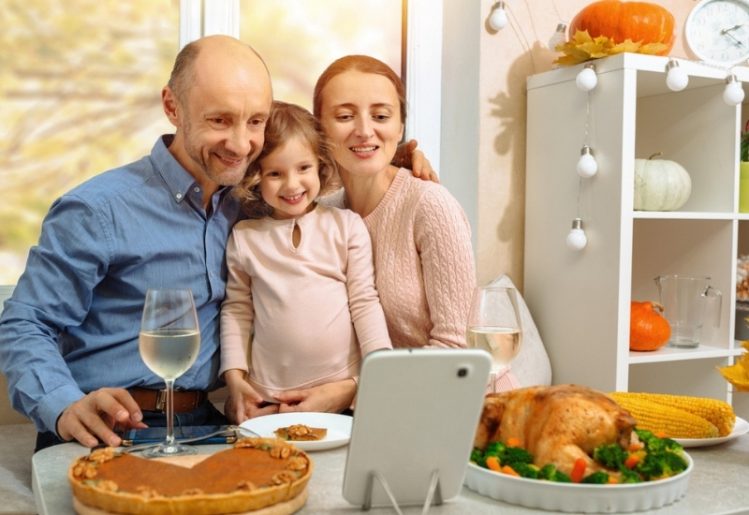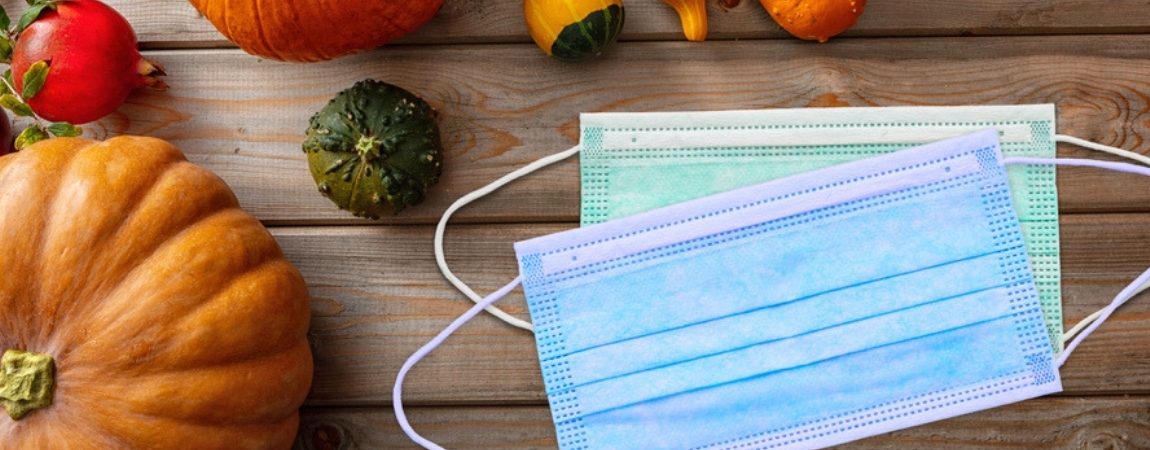Thanksgiving 2020: Preserving Mental Health During the Pandemic
As the opening day of the holiday season, Thanksgiving can be stressful -- even without Covid-19 concerns. The focus on family and tradition can bring up a lot of emotions, expectations and pressures. It’s no wonder so many people struggle with mental health issues during this time of year; even those that look forward to the holidays with joy and excitement. Covid-19 worries and restrictions can compound stress this Thanksgiving 2020 and make it more difficult to maintain a sense of mental well-being.
Thanksgiving 2020 Won’t Be The Same For Most
 For Thanksgiving 2020, officials are urging people not to travel, to stay at home and to limit their contact with others. Some states have enacted formal limitations for gatherings. Families used to spending the holidays together must rethink their Thanksgiving plans and possibly even forego their traditional family gatherings.
For Thanksgiving 2020, officials are urging people not to travel, to stay at home and to limit their contact with others. Some states have enacted formal limitations for gatherings. Families used to spending the holidays together must rethink their Thanksgiving plans and possibly even forego their traditional family gatherings.
CNN reports that an Axios-Ipsos poll revealed that 61 percent of Americans have made changes to their Thanksgiving plans because of the rising number of Covid-19 cases many regions are experiencing. Approximately 10 percent of those responding to the poll aren’t going to celebrate the holiday at all this year.
Potential Mental Health Consequences
The Covid-19 pandemic has come with a lot of its own stress and worry, not limited to health concerns. There’s been a serious economic impact for many, along with significant changes to daily routines. Many parents find themselves struggling to balance their children’s distance learning with their own work, a difficult scenario whether they’re working from home or still at their job sites. Uncertainty and worry have become a part of the 2020 landscape. That’s a lot for people to cope with, especially coming into the holiday season.
Being separated from loved ones during a time of year so hyper-focused on family togetherness can be difficult, increasing feelings of isolation and loneliness. Stress and anxiety about the health of family members that are more vulnerable to Covid-19 can feel overwhelming. Everyday worries can be heightened in such a high-stress atmosphere, making it more difficult cope with daily challenges and increasing feelings of irritation and frustration. This can all contribute to a higher risk of depression for those already struggling with mood disorders and other mental health issues.
Practical Steps To Preserve Mental Well-Being
Fortunately, there are plenty of things you can do to protect your mental health during this challenging time. Be proactive about shoring up the foundations of good mental health. Make sure you take the time to get enough sleep. Make a special effort to get some exercise, especially outside in the sun. Invest time in eating well.
Numerous studies demonstrate the importance of nutrition on optimum cognitive functioning and mental well-being. Be sure to get plenty of B complex vitamins, antioxidant nutrients, vitamin D, vitamin C and omega-3 fatty acids. Choose whole foods and avoid overly processed foods that offer little nutrition, but plenty of chemicals. Artificial colors, flavors and other food chemicals can impact mood, especially in those with chemical sensitivities.
Amino acids are also important to mental well-being. The amino acid L-tryptophan is directly involved in the production of serotonin. Foods like turkey, fatty fish, nuts, seeds and bananas provide this essential nutrient. 5-HTP is another component in the production of serotonin. Using a supplement with both L-tryptophan and 5-HTP has been shown to help with symptoms of depression and anxiety. If your diet hasn’t been its best lately, taking this type of supplement could be a wise step to help cope with the stresses of Thanksgiving 2020. However, when using any dietary supplement, it is important to discuss it with your health care provider to make sure it won’t interfere with any other medications you may be taking.
 Technology can present practical solutions for sharing Thanksgiving in a time of social distancing. Reduce feelings of isolation or loneliness by spending time together via Zoom, perhaps even sharing a holiday meal or dessert together online or getting together after the big meal to chat over coffee. You may even find that, without the usual hustle and bustle of meal prep for a crowd, you actually share more quality time than usual with relatives and friends. Make sure that elderly family members know how to use these technologies ahead of time so they can enjoy virtual get-togethers.
Technology can present practical solutions for sharing Thanksgiving in a time of social distancing. Reduce feelings of isolation or loneliness by spending time together via Zoom, perhaps even sharing a holiday meal or dessert together online or getting together after the big meal to chat over coffee. You may even find that, without the usual hustle and bustle of meal prep for a crowd, you actually share more quality time than usual with relatives and friends. Make sure that elderly family members know how to use these technologies ahead of time so they can enjoy virtual get-togethers.
Be Thankful Together
Even virtually, one of the most important Thanksgiving traditions – being thankful – can still be enjoyed. In fact, gratitude has been shown to be an important part of mental and emotional well-being. Being mindfully thankful can help you to be more resilient in troubled times, can improve mental health by helping to dissipate negative emotions and can help increase empathy, all of which are useful during this Covid-19-complicated period of time. Many families take a few minutes on Thanksgiving to talk about the things they are grateful for. That’s something that can be done together this Thanksgiving 2020, even when separated by distance.





